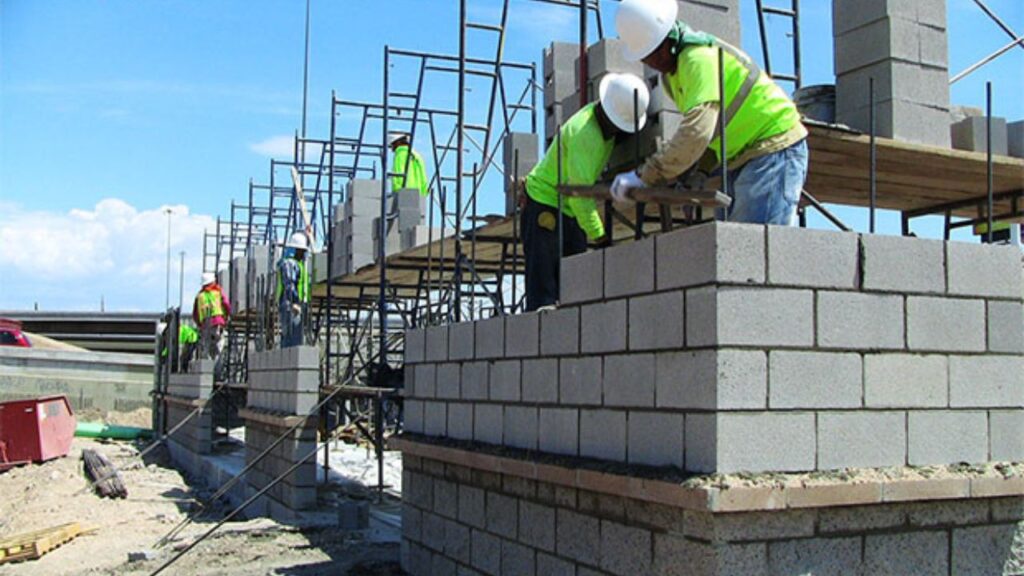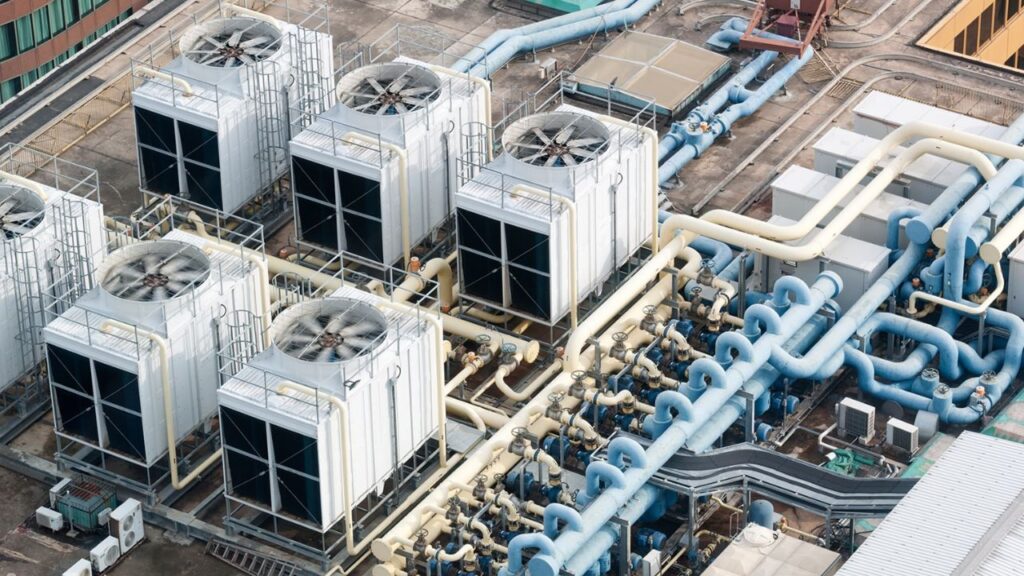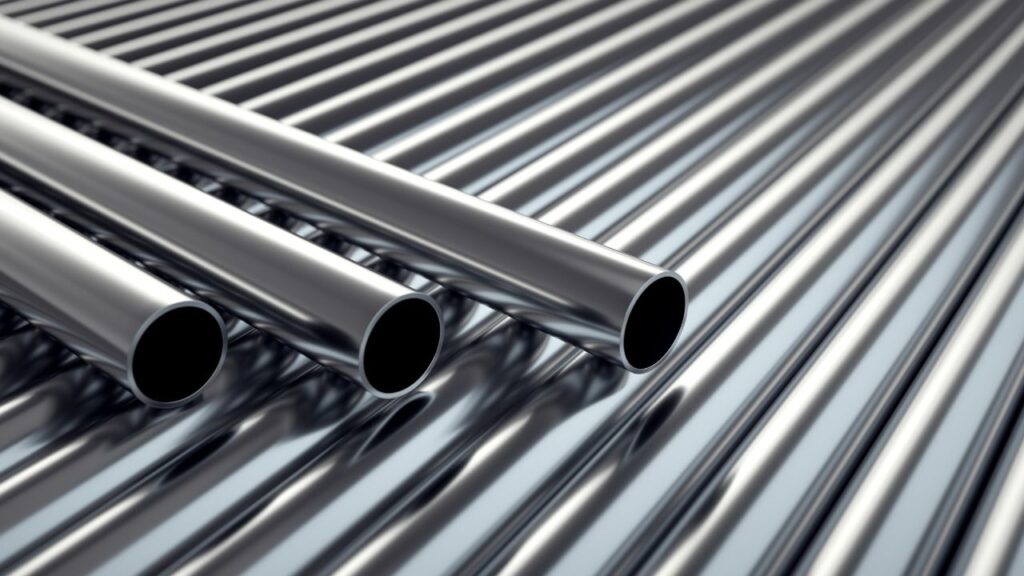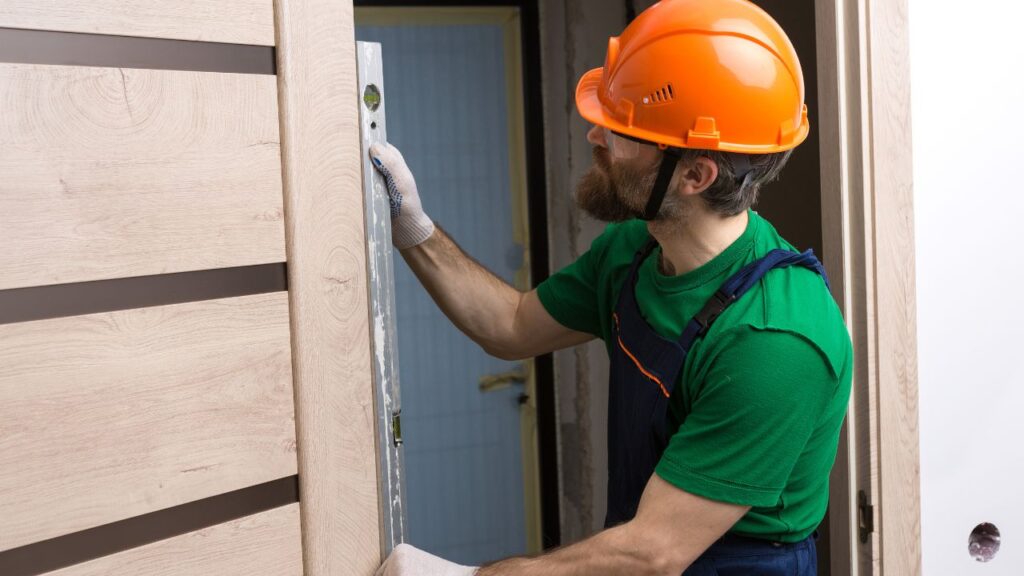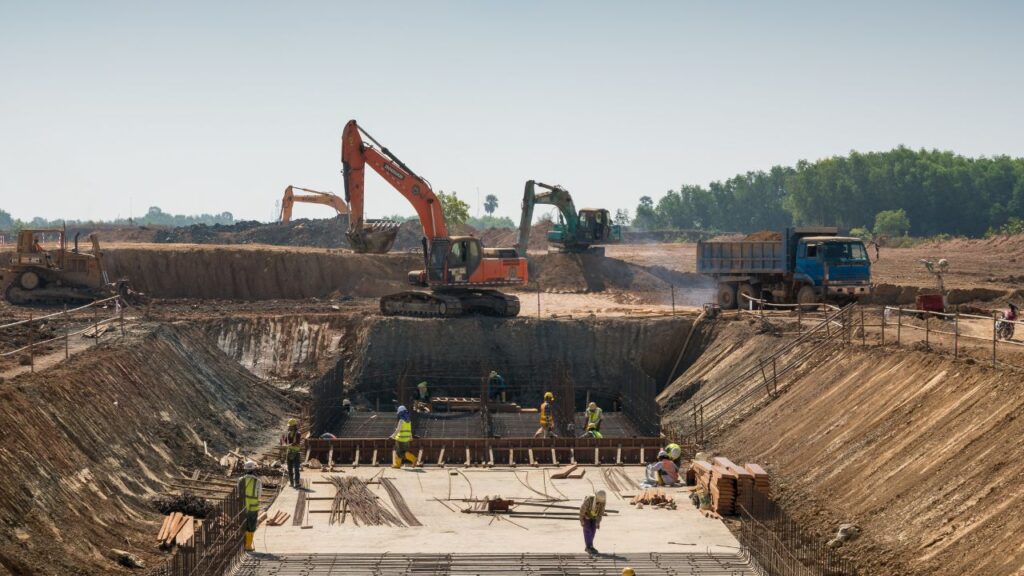A deck extension is an excellent way to expand your outdoor living space, offering more room for entertaining, relaxing, or simply enjoying the outdoors. For homeowners, contractors, and developers, understanding the costs associated with a deck extension is crucial to budgeting accurately and planning the project effectively. At Estimate Florida Consulting, we provide comprehensive cost calculators and consultation services to help you navigate deck extension costs efficiently.
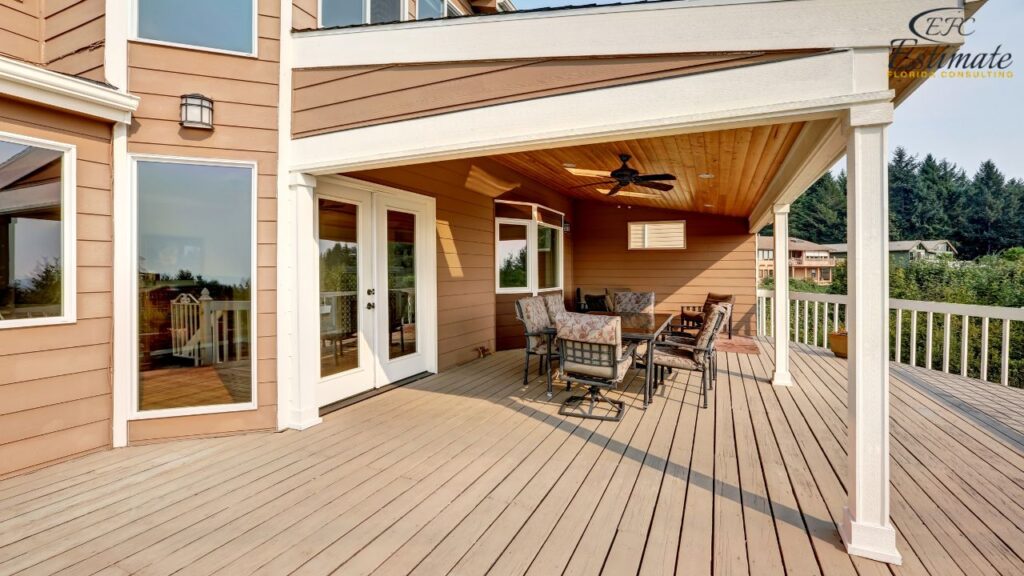
Deck Extension Cost per Square Foot
Calculating the cost per square foot is one of the most straightforward ways to estimate a deck extension. Prices can range widely, depending on the type of materials and design complexity. In Florida, the cost of deck extensions typically ranges from $25 to $65 per square foot.
Deck Material | Cost per Square Foot |
Wood (e.g., Pine) | $25 – $35 |
Composite | $40 – $55 |
PVC | $45 – $60 |
Aluminum | $50 – $65 |
Deck Extension Cost by Size
The size of a deck extension directly impacts material, labor, and permit costs. Below is an average cost range based on popular deck sizes.
Deck Size | Estimated Cost (Wood) | Estimated Cost (Composite) |
100 sq. ft. | $2,500 – $3,500 | $4,000 – $5,500 |
200 sq. ft. | $5,000 – $7,000 | $8,000 – $11,000 |
300 sq. ft. | $7,500 – $10,500 | $12,000 – $16,500 |
400 sq. ft. | $10,000 – $14,000 | $16,000 – $22,000 |
Deck Extension by Materials
The choice of material for a deck extension significantly influences both the initial cost and long-term maintenance requirements. Each material type offers unique benefits in terms of aesthetics, durability, and upkeep.
Wood Decks
Wood remains a popular and classic choice for deck extensions, providing a natural, rustic look at a relatively affordable price. Common wood options include pressure-treated pine, cedar, and redwood, with costs ranging from $25 to $35 per square foot. Wood decks offer versatility in terms of staining or painting to match various outdoor styles, and they’re often favored for their organic appeal. However, wood requires regular maintenance, including sealing and staining, to prevent fading, splintering, and warping, especially in regions with fluctuating weather conditions. Although wood is affordable upfront, the need for ongoing upkeep adds to the lifetime cost.
Composite Decks
Composite decking, made from a blend of wood fibers and plastic, has become a favored alternative to traditional wood due to its durability and low maintenance. Composite decks generally cost between $40 and $55 per square foot, positioning them as a mid-range option in terms of pricing. This material is highly resistant to rot, insects, and fading, making it ideal for homeowners seeking a long-lasting, low-maintenance solution. While composite decking can be more expensive than wood, its reduced upkeep costs and longevity often justify the higher initial investment.
PVC Decks
PVC (polyvinyl chloride) decks offer exceptional resistance to weathering, moisture, and mold, making them an excellent choice for humid climates like Florida. PVC decking costs between $45 and $60 per square foot, with its higher price reflecting the material’s durability and longevity. Unlike wood, PVC doesn’t absorb moisture, which helps prevent warping or swelling. Additionally, PVC decking requires minimal maintenance, usually just a periodic wash to keep it looking clean. Though PVC decks come with a higher upfront cost, their longevity and ease of maintenance make them a practical choice for homeowners looking for a durable, weather-resistant deck option.
Get Acquainted with Estimation
Aluminum Decks
Aluminum decks are the most durable option on the market, offering impressive resistance to fire, insects, rot, and corrosion. Aluminum decking is the most expensive material, typically ranging from $50 to $65 per square foot. However, it offers unmatched longevity, often lasting decades with minimal maintenance, which can make it a worthwhile investment for those seeking a lifetime solution. Aluminum’s sleek appearance suits contemporary designs, and its strength ensures it can withstand heavy loads and high traffic. Although the initial cost is higher, the low maintenance needs and long lifespan make aluminum decking a cost-effective option over time.
Types of Deck Extensions
Selecting the right type of deck extension adds both functional and visual value to your outdoor space. Each type of deck extension has distinct characteristics and cost factors based on its construction complexity and material needs.
Platform Decks
Platform decks are simple, ground-level decks that rest directly on or near the ground without requiring additional support structures like railings or stairs. This makes them one of the most cost-effective deck extension options, typically costing between $20 and $40 per square foot. Platform decks are ideal for homeowners seeking a straightforward, budget-friendly outdoor space and work well in backyards with flat terrain. However, they may require added moisture-resistant materials if installed on grass or areas prone to dampness to ensure longevity.
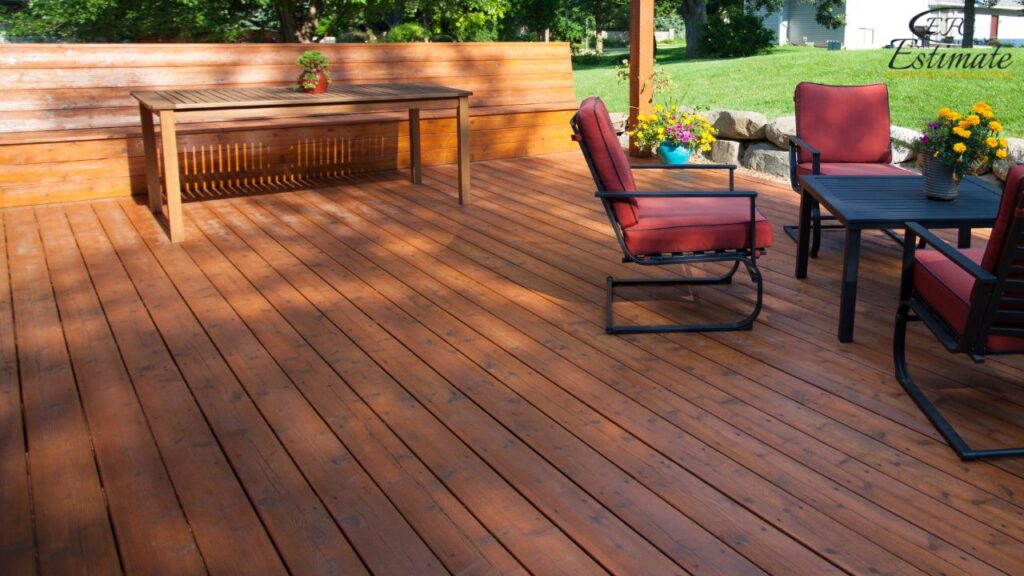
Raised Decks
Raised decks are elevated above ground level, making them suitable for properties with sloping terrain or where views are desired. These decks require support posts, stairs, and railings to ensure safety and accessibility, leading to more complex construction requirements. Raised deck costs generally range between $30 and $50 per square foot, depending on height, material choice, and the number of stairs and railings needed. While slightly more expensive than platform decks, raised decks provide more versatility and a distinct separation from the ground, which can enhance the overall appeal and usability of the outdoor space.
Multi-Level Decks
Multi-level decks are composed of two or more interconnected platforms at varying heights, connected by stairs. These decks are especially effective for properties with uneven or sloping landscapes, creating a tiered effect that adds visual interest and functional division of space. Due to the added construction complexity and increased material needs, multi-level decks are among the more costly options, typically ranging from $45 to $70 per square foot. They often require careful design and planning, as each level may need individual support structures, which adds to both labor and material expenses. Multi-level decks are ideal for creating separate areas for dining, lounging, or entertainment.
Freestanding Decks
Freestanding decks are detached from the house, offering flexibility in placement anywhere on the property, whether in the garden, near a pool, or in a quiet corner of the yard. The cost of freestanding decks depends on location, ground preparation, and construction complexity, usually ranging from $30 to $55 per square foot. Unlike attached decks, freestanding decks don’t rely on the home’s structural support, which requires additional bracing and foundation work for stability. These decks provide versatility and are a great choice for properties where attaching a deck to the home isn’t feasible.
Cost of Deck Railings and Accessories
Deck railings add both safety and style to a deck extension, with costs varying based on materials and design.
Railing Material | Average Cost per Linear Foot |
Wood | $20 – $40 |
Metal (Steel/Aluminum) | $30 – $60 |
Glass Panels | $50 – $100 |
Composite | $40 – $70 |
Deck Extension with Additional Features
Adding extra features to a deck extension can greatly enhance its usability, style, and comfort, though these upgrades will increase the overall project cost. Here’s a breakdown of common deck features and their associated costs:
Built-in Benches and Planters
Incorporating built-in benches and planters into a deck design adds both functionality and aesthetic appeal. These features provide convenient seating and decorative options without the need for extra furniture, creating a cohesive, integrated look. Costs for built-in benches or planters typically range from $500 to $2,000, depending on factors such as material, size, and design complexity. Custom wood or composite benches with intricate designs will fall on the higher end, while simpler, straightforward structures can keep costs lower.
Railings and Lighting
Railings are essential for elevated decks, offering safety and a polished, finished look. The cost for railings varies between $15 and $30 per linear foot, depending on the material (such as wood, metal, or composite) and design style. Lighting, such as recessed lights, LED fixtures, or post lights, can further enhance the deck by improving safety and ambiance for nighttime use. Deck lighting costs range from $500 to $2,500, with options like solar-powered lights on the lower end and wired LED systems on the higher end. Combined, these features contribute both style and functionality to the deck extension, making it safer and more inviting.
Deck Roofing or Pergolas
Adding a roof or pergola transforms a deck into a versatile, all-weather space by providing shade and shelter. Pergolas, which offer partial coverage, generally cost between $3,000 and $8,000, with prices influenced by materials (like wood or vinyl) and design intricacies. For a more comprehensive option, a full deck roof can range from $5,000 to $15,000, depending on the materials, size, and structural requirements. Roofs made from durable materials like metal or shingle will be on the higher end of the spectrum, while simpler coverings will be more economical. These features extend
Deck Extension Cost by Height
The height of a deck influences construction complexity, safety requirements, and the need for additional support structures, all of which impact cost.
Deck Height | Cost Increase (%) |
Ground Level | Standard Rate |
2 to 4 feet | +10% |
5 to 8 feet | +15% |
9+ feet | +20% |
Labor and Installation Costs for Deck Extensions
Labor costs for deck extensions depend on factors like location, deck complexity, and contractor rates. On average, labor costs for deck installation range from $15 to $40 per square foot. Complex designs and multi-level decks may require skilled carpenters, increasing labor expenses.
Florida’s labor market may also impact pricing, with urban areas typically having higher labor costs than rural regions.
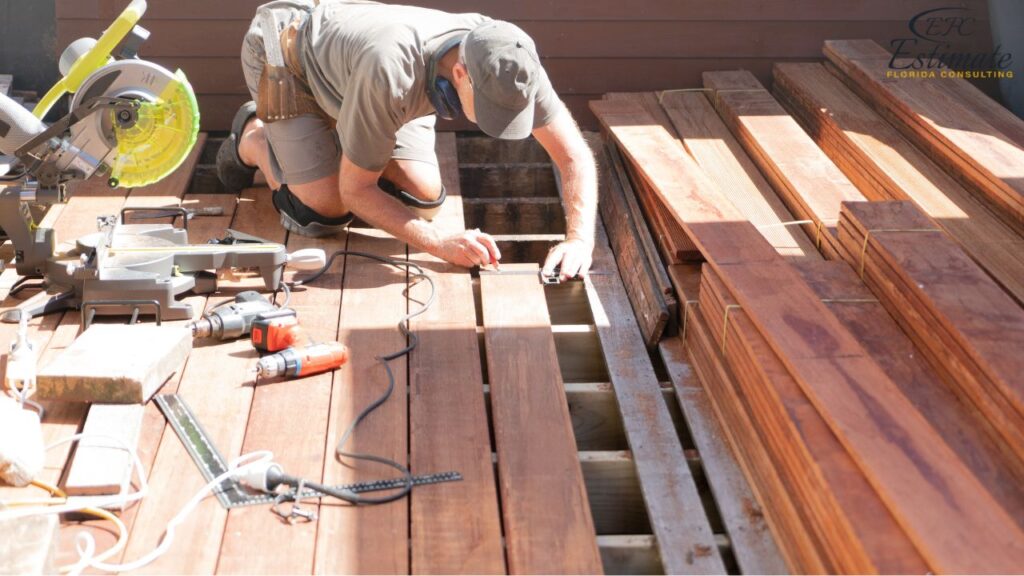
Permits and Inspection Costs
In most areas, extending a deck requires a building permit. Permit costs in Florida can range from $100 to $500, depending on the project’s size and complexity. Additionally, homeowners may need to budget for inspection fees, which can add another $50 to $200. Ensuring compliance with local codes is essential, as violations may result in fines or forced changes to the deck structure.
Deck Extension Cost Calculator
To help homeowners and contractors get a quick estimate of deck extension costs, here’s a simple calculator format to use:
- Determine Deck Size (in square feet): Multiply deck length by width.
- Select Material: Choose from options like pressure-treated wood, composite, or hardwood.
- Add Labor Costs: Multiply total square footage by labor rate (average $15 to $30 per sq. ft.).
- Include Additional Features: Add costs for any desired features (e.g., railings, seating, lighting).
Materials and Their Impact on Cost
The choice of decking material is a major factor affecting the total cost of a deck extension. Material durability, aesthetics, and maintenance requirements vary, influencing both short-term and long-term expenses.
Wood Decking Options
- Pressure-Treated Wood: A popular choice for budget-conscious projects, pressure-treated wood costs around $15 to $25 per square foot and requires regular maintenance to prevent rot and insect damage.
- Cedar and Redwood: These premium wood options offer natural beauty and resistance to decay. However, they are more expensive, averaging $25 to $35 per square foot.
Composite Decking Options
Composite decking is a low-maintenance, durable option that typically costs between $30 and $45 per square foot. Composites are resistant to rot and weathering, making them a practical choice for Florida’s climate.
PVC and Aluminum Decking Options
PVC and aluminum decking provide high durability, requiring minimal maintenance and offering superior resistance to moisture, mold, and pests. Costs for these materials are higher, ranging from $40 to $50 per square foot, but they offer long-term savings in maintenance and replacement costs.
Download Template For Deck Extension Project Breakdown
- Materials list updated to the zip code
- Fast delivery
- Data base of general contractors and sub-contractors
- Local estimators

Conclusion
Installing a custom barn door offers both style and practicality, with costs influenced by door type, size, material, and installation complexity. Single barn doors for small spaces range from $440 to $1,540, while larger, double doors can reach $3,080 or more. Materials like wood and glass provide premium aesthetics but come at a higher cost, whereas MDF and vinyl offer budget-friendly options. Additional expenses for specialized hardware, professional installation, and optional finishes like paint or stain contribute to the overall budget. By selecting suitable materials and hardware, homeowners can achieve an ideal blend of functionality and style.
Frequently Asked Question
Deck extension costs in Florida typically range from $25 to $65 per square foot, depending on the material and design complexity.
Different materials come with varying costs: Wood ($25–$35 per sq. ft.), Composite ($40–$55), PVC ($45–$60), and Aluminum ($50–$65). Each offers unique benefits in durability and maintenance.
The larger the deck, the higher the cost. For example, a 200 sq. ft. wood deck costs $5,000–$7,000, while the same size in composite material costs $8,000–$11,000.
Common deck materials include pressure-treated wood, composite, PVC, and aluminum. Each has advantages in terms of cost, durability, and maintenance.
Platform decks are ground-level, costing $20–$40 per sq. ft., while raised decks require support structures like posts and railings, costing $30–$50 per sq. ft. Raised decks are suitable for sloping terrains.
Multi-level decks are more complex and typically range from $45 to $70 per sq. ft. They are ideal for properties with uneven landscapes and offer distinct sections for various activities.
Freestanding decks are detached from the house and cost $30–$55 per sq. ft. These decks can be placed anywhere on the property, providing flexibility in location.
Deck railing costs vary by material: Wood ($20–$40 per linear foot), Metal ($30–$60), Glass ($50–$100), and Composite ($40–$70).
Yes, features like built-in benches and planters cost $500–$2,000, while deck lighting ranges from $500 to $2,500, depending on the type and design.
Comprehensive Trade-Specific Estimates
At Estimate Florida Consulting, we offer detailed cost estimates across all major trades, ensuring no part of your project is overlooked. From the foundation to the finishing touches, our trade-specific estimates provide you with a complete and accurate breakdown of costs for any type of construction project.

Testimonials
What Our Clients Say
We take pride in delivering accurate, timely, and reliable estimates that help contractors and builders win more projects. Our clients consistently praise our attention to detail, fast turnaround times, and the positive impact our estimates have on their businesses.
Estimate Florida Consulting has helped us win more bids with their fast and accurate estimates. We trust them for every project!

Steps to Follow
Our Simple Process to Get Your Estimate
01
Upload Plans
Submit your project plans, blueprints, or relevant documents through our online form or via email.
02
Receive Quotation
We’ll review your project details and send you a quote based on your scope and requirements.
03
Confirmation
Confirm the details and finalize any adjustments to ensure the estimate meets your project needs.
04
Get Estimate
Receive your detailed, trade-specific estimate within 1-2 business days, ready for your project execution.





